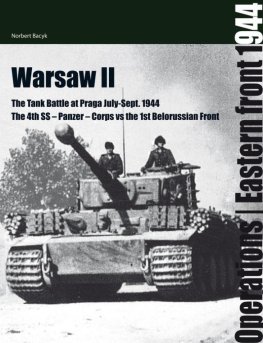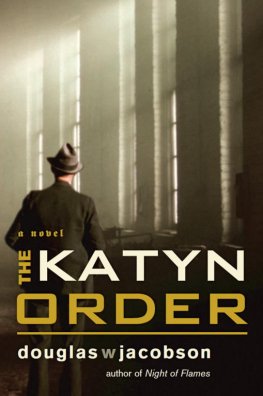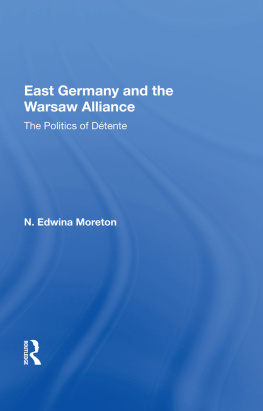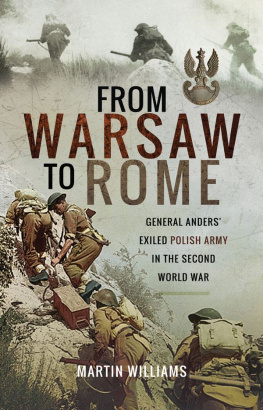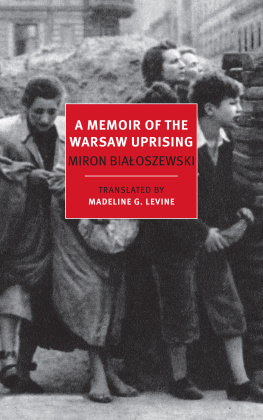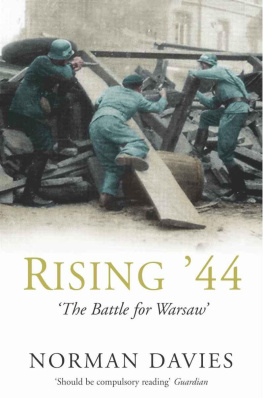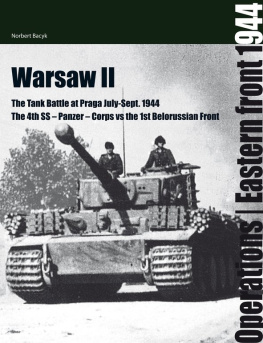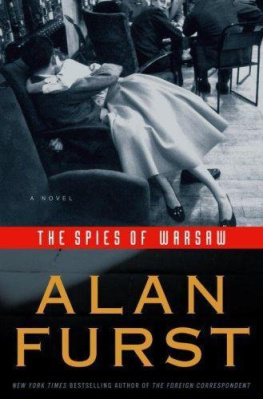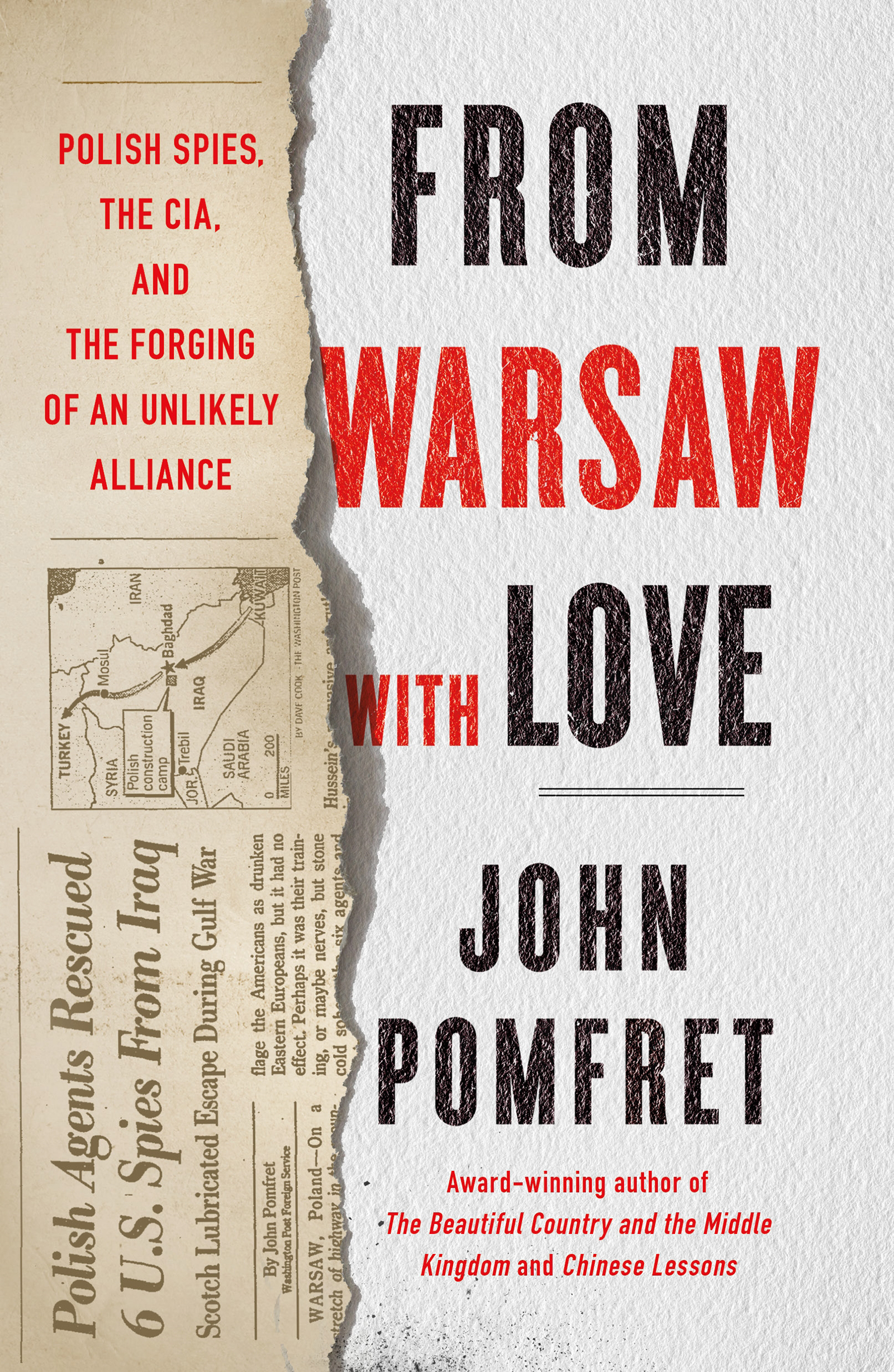Contents
Guide
Pagebreaks of the print version

The author and publisher have provided this e-book to you for your personal use only. You may not make this e-book publicly available in any way. Copyright infringement is against the law. If you believe the copy of this e-book you are reading infringes on the authors copyright, please notify the publisher at: us.macmillanusa.com/piracy.
To Dali, Liya, and Sophie
Liberty is nothing without a Pole. His presence here is essentialThe Illuminationthe rocketsand the racket are lost without him.
Colonel Michael Jackson,
8th Massachusetts Regiment, Continental Army, 1783
One afternoon in late October 1990, on a dusty stretch of highway in the mountains of northern Iraq, a Polish intelligence officer pulled four bottles of Johnnie Walker Red out of his satchel and passed them to six new friendsfrom the United States.
Drink, came the command.
Although they hadnt had a bite to eat all day, the Americanstwo US Army officers, three intelligence agency cryptanalysts, and a CIA station chiefobeyed, sipping and sloshing the fiery brew. The booze, along with six pairs of cheap khaki overalls and six fake passports, were meant to camouflage the Americans as drunken Poles on their way home from construction jobs in the Middle East. The alcohol had little effect. Stone-cold sober and clammy with sweat, the six officers approached the border between Iraq and Turkey at dusk.
The whiskey-soaked escapade capped one of the most remarkable clandestine operations of the Persian Gulf Wara mission of such significance that it opened the floodgates for an alliance between Washington and Warsaw and joint intelligence operations that would span the globe.
The twisted roots of this union stretch back to the dissolution of the USSR, when foe became friend; before that to the Cold War, when Polish spies infiltrated America and stole US secrets; and deeper still into the rubble of World War II, when America tossed Poland to the Russians in exchange for Josef Stalins promise to level Soviet firepower at Japan. This unlikely alliance culminated when Poland led the Czech Republic and Hungary into NATO in 1999a geostrategic earthquake that obliterated the boundaries of a divided Europe. The alliance with Poland didnt stop there; it continues to this day.
From Warsaw with Love reminds us how far allies go for America. They risk the lives of their operatives, their soldiers, and those of innocents, too. They bend morality. They break the law. All for the chance to be Americas friend. For those friends, Uncle Sam provides security, counsel, technology, and an enormous market. But this account also warns of an America that can lead its allies down the garden path, leaving professed partners belittled and betrayed.
As Polish politician and journalist Radosaw Sikorski has observed, an alliance with the United States is like marrying a hippo. At first, its warm and cuddly. Then the hippo turns, crushes you, and doesnt even notice.
On February 1, 1977, Marian Zacharski, a Polish salesman, rolled into the late-afternoon light of Los Angeles in a Pontiac Catalina with his wife and daughter. At the end of a four-day drive from wintry Chicago, their destination was a tidy apartment complex within earshot of Los Angeles International Airport.
A rangy tennis player with a big serve and an easy smile, Zacharski exuded the entrepreneurial chutzpah of a fresh-faced immigrant answering the long pull of the California dream. But Zacharski would not become an American; instead hed become a spy. As an agent from the Soviet-led Warsaw Pact, Zacharski robbed the United States of its most closely held military secrets. In so doing, he achieved a legendary status among the FBI agents and CIA officers who tracked him down.
As he guided the Catalina into the parking lot of Cross Creek Apartments, Zacharski wasnt yet a master of espionage tradecraft. He wasnt even an intelligence officer. Zacharski had been sent to America for the mundane task of selling lathes. He represented an outfit called the Polish American Machine Company, or POLAMCO, which was founded in 1975 as Polands Communist government sought to stabilize its tottering economy with exports to the capitalist world. Between 1970 and 1977, Poland borrowed $20 billion from Western banks and institutions in a failed bid to put money in peoples pockets and food on empty shelves. Poland counted on increased exports through state-run firms like POLAMCO to repay its debts.
POLAMCO was a subsidiary of Metalexport, the trading wing of the Ministry of Machine Building. Zacharski had joined Metalexport in 1973, after graduating from the University of Warsaw with a degree in law. At six-two with sandy blond hair and an engaging if somewhat narcissistic personality, Zacharski impressed his bosses as an ambitious man on the make.
Zacharski had been born into, as he put it, a respectable Polish family. During World War II, his father, Wacaw, served in the underground resistance forces known as the AK, the Armia Krajowa, or the Home Army, which battled the occupying German Wehrmacht. Over the summer of 1944, Wacaw fought in the Warsaw Uprising, which sought to liberate Polands capital from German occupation.
The Warsaw Uprising failed. German forces massacred thousands of Poles, obliterated the AK, and gutted Warsaw while the Soviet Red Army watched and waited on the east bank of the Vistula River. For the remainder of the war, Wacaw and thousands of other prisoners were confined to a slave labor camp in Bavaria. After the Allied victory, Wacaw returned to Poland. With Warsaw in ruins, he opted for a small city on the Baltic Coast near Gdask, where he met Zacharskis mother, Czesawa.
The Soviet-installed government of the newly minted Peoples Republic of Poland mistrusted those whod served in the anti-Communist AK. For years, Wacaw was monitored by the secret police. Still, he succeeded in building a modest manufacturing business allowing Czesawa to stay at home to raise Marian and his younger brother, Bogdan. Small firms, like small private farms, were fixtures of Polands socialist economy. Communism never took root in Polish soil, as it had in the neighboring USSR. The heft of the Catholic Church and the cussedness of the Polish peasantry were mostly to blame. Imposing Communism on Poland, Soviet leader Josef Stalin once quipped, is like saddling a cow. He mocked Polish Communist comrades as radishes, red only on the outside.
Zacharskis parents gave their son opportunities that many of his peers could only dream of. Thanks to study in England, his English was practically fluent. Hed backpacked around Europe, too. So, when POLAMCO began operations in the United States in 1975, Zacharski, barely twenty-four years old, was tapped as one of the firms reps. Zacharskis wife, Basia, and ten-month-old Magosia joined him in America in the fall of 1976.
The Polish government based POLAMCO in Elk Grove Village, near Chicagos OHare International Airport, banking on a warm embrace from a metropolitan region home to a million and a half Polish Americans. But after suffering through the winter of 76, the third coldest in Chicagos history, Zacharski wanted out of Illinois. He hadnt come all the way to America just to endure Warsaw-like iciness in the Windy City. Hed also found promising leads for POLAMCOs products among US aeronautics firms on the West Coast. California made sense for a satellite office. Besides, the tennis was better in L.A.


